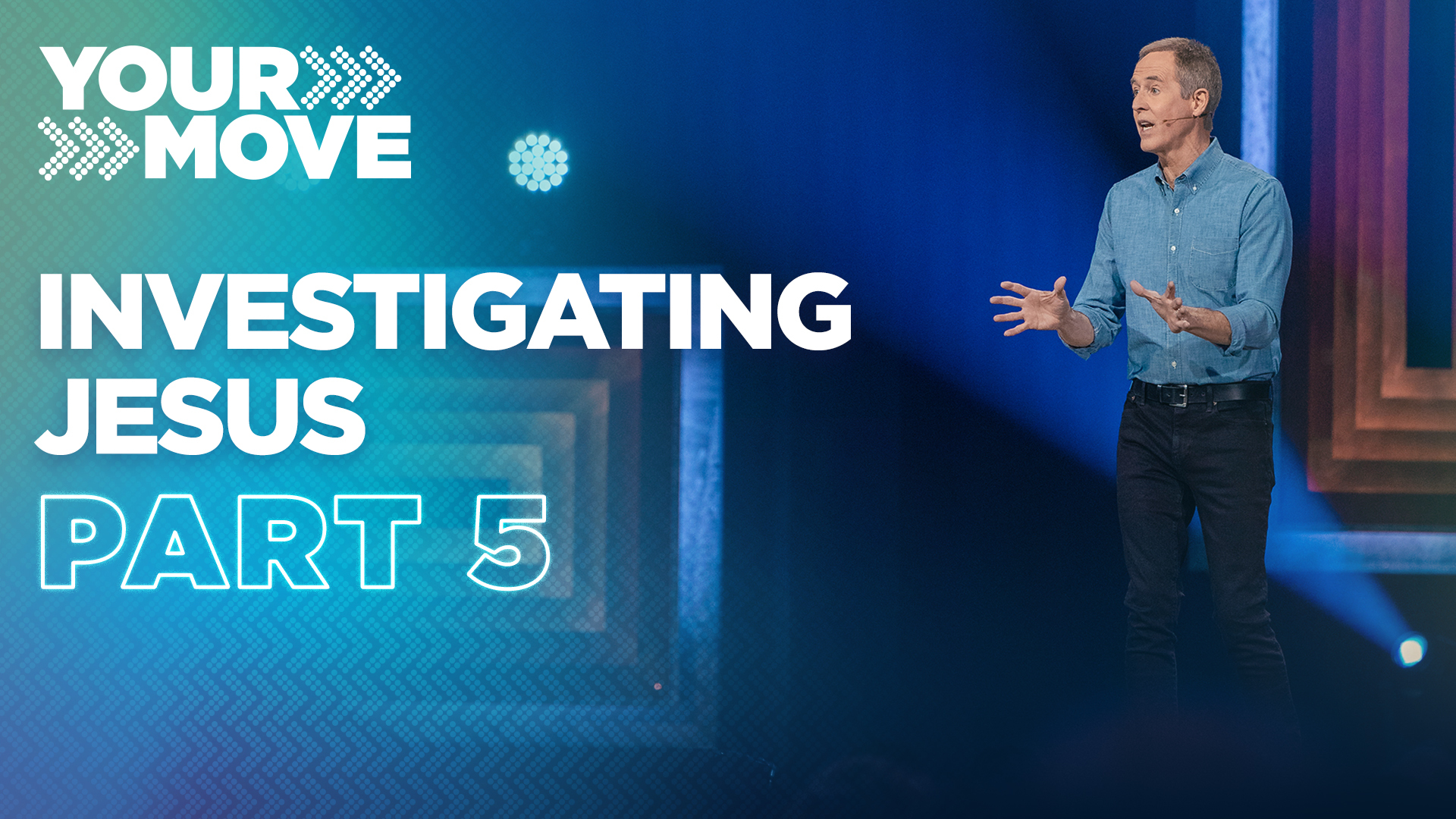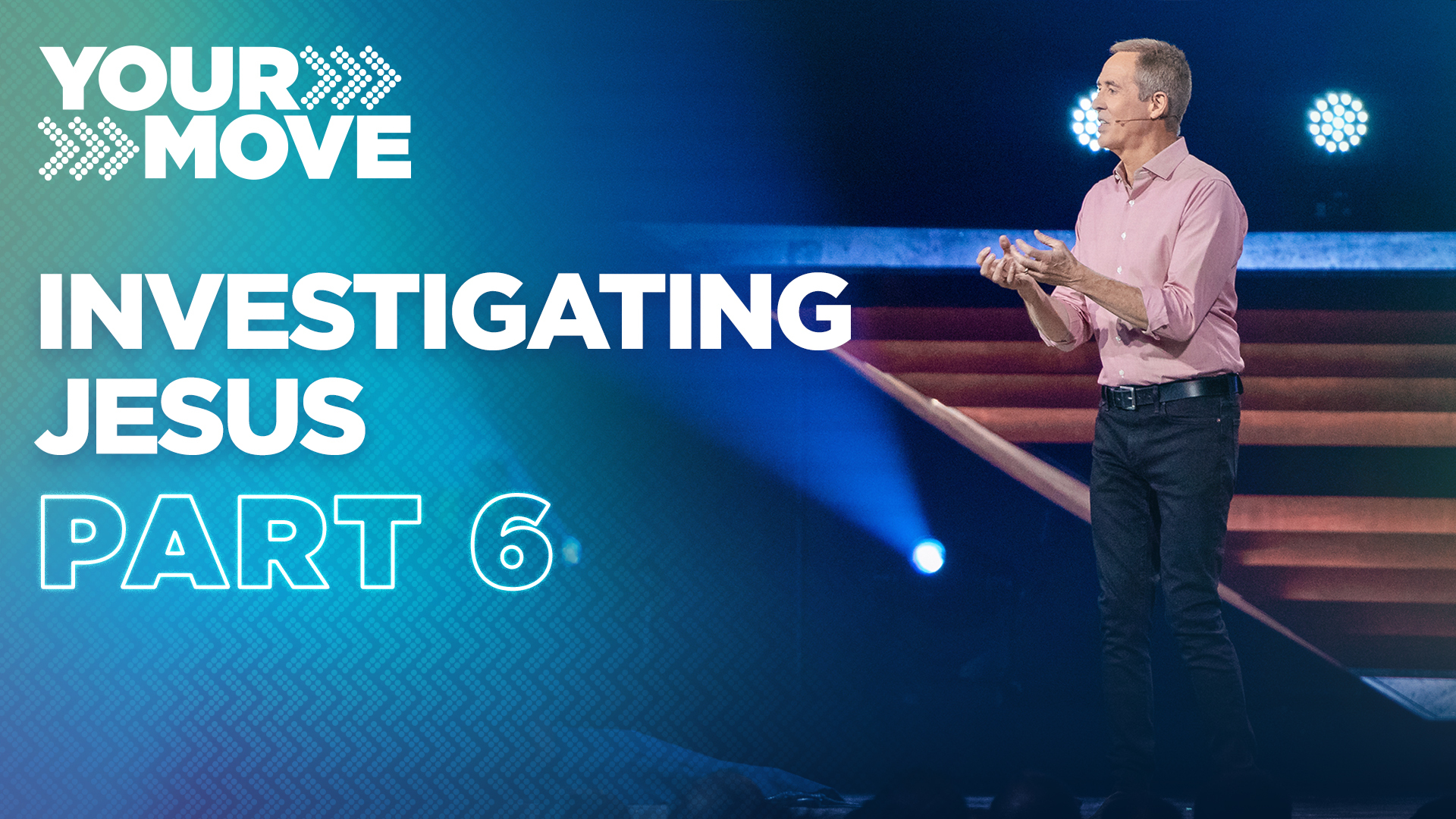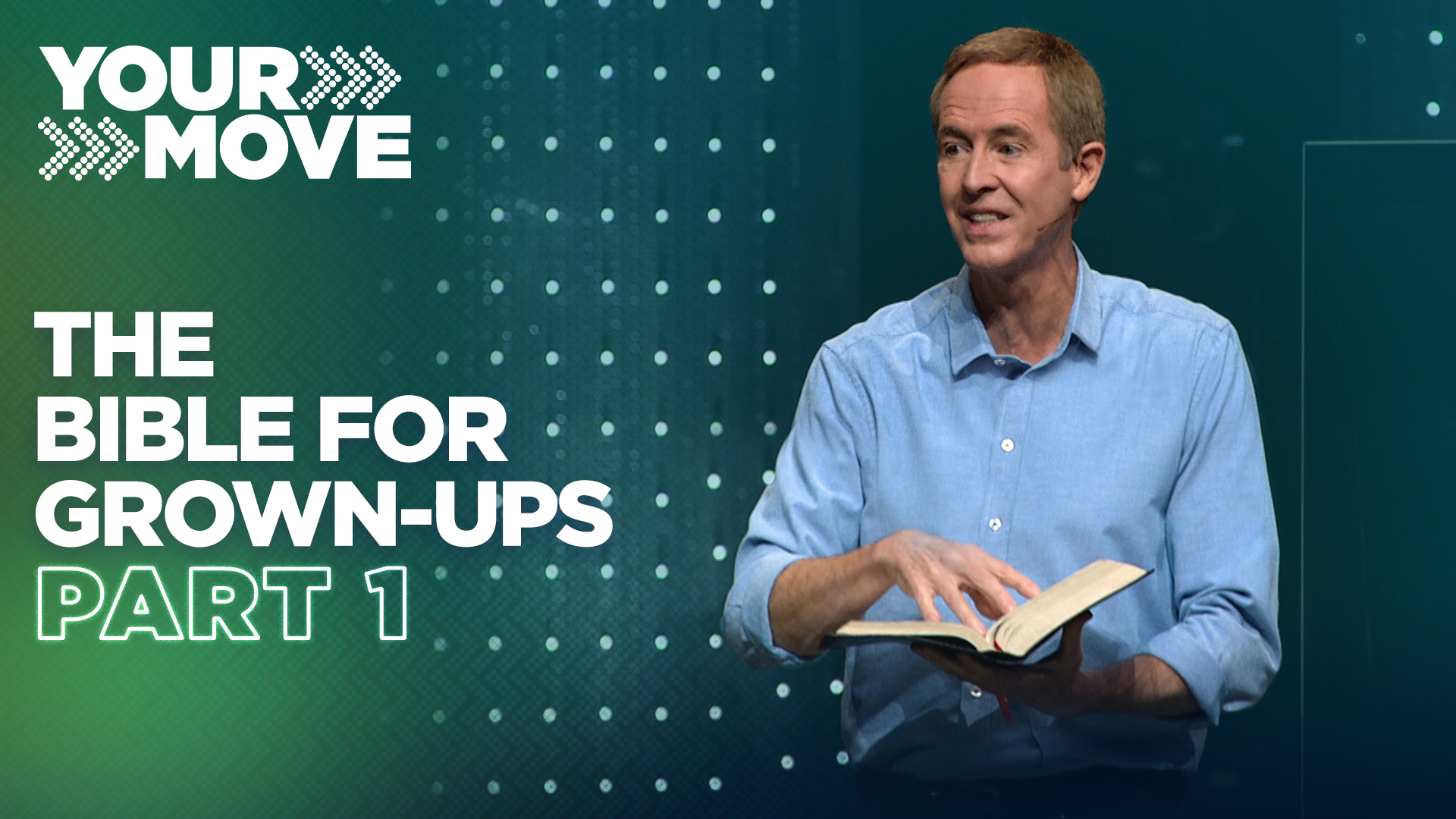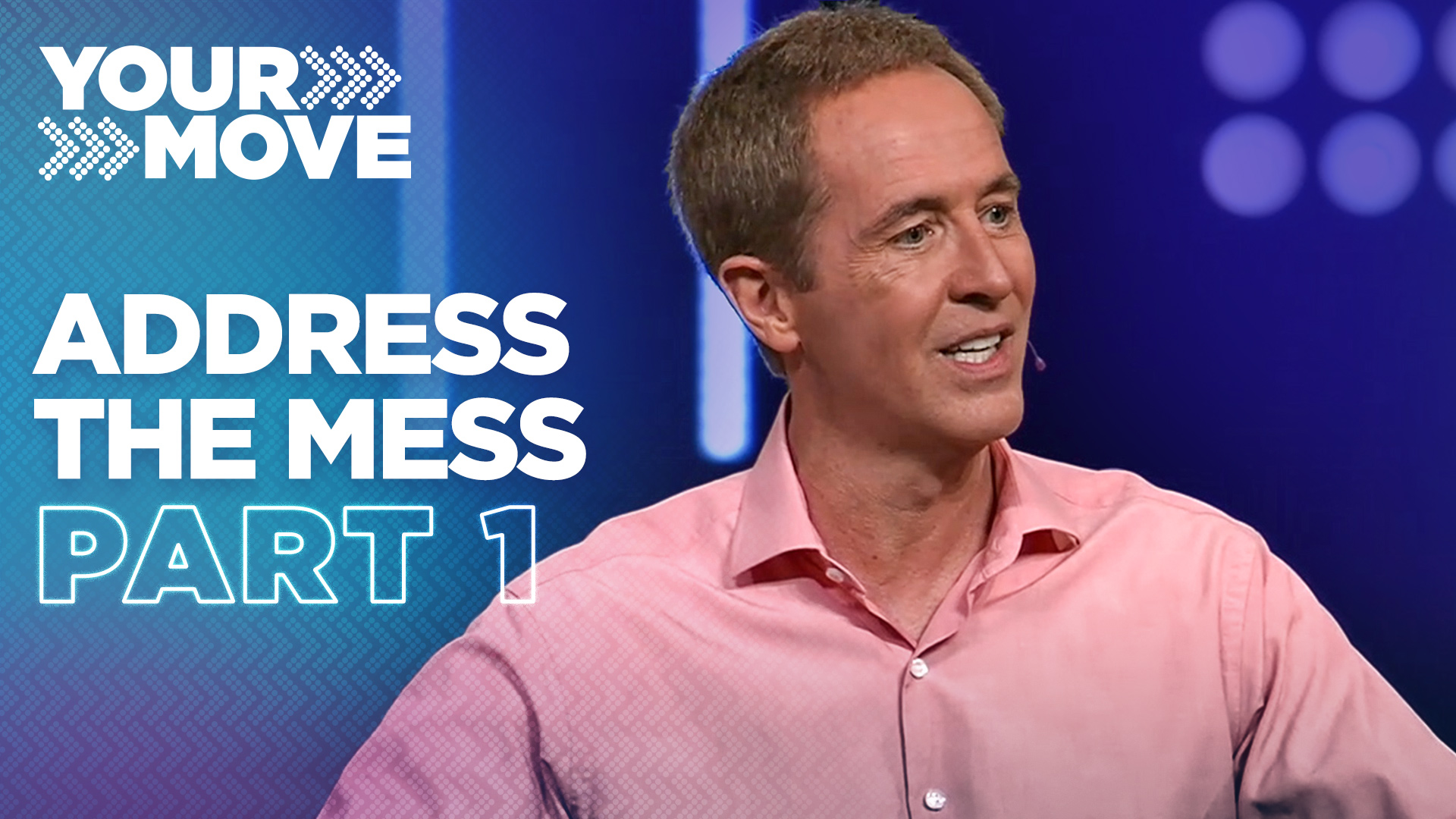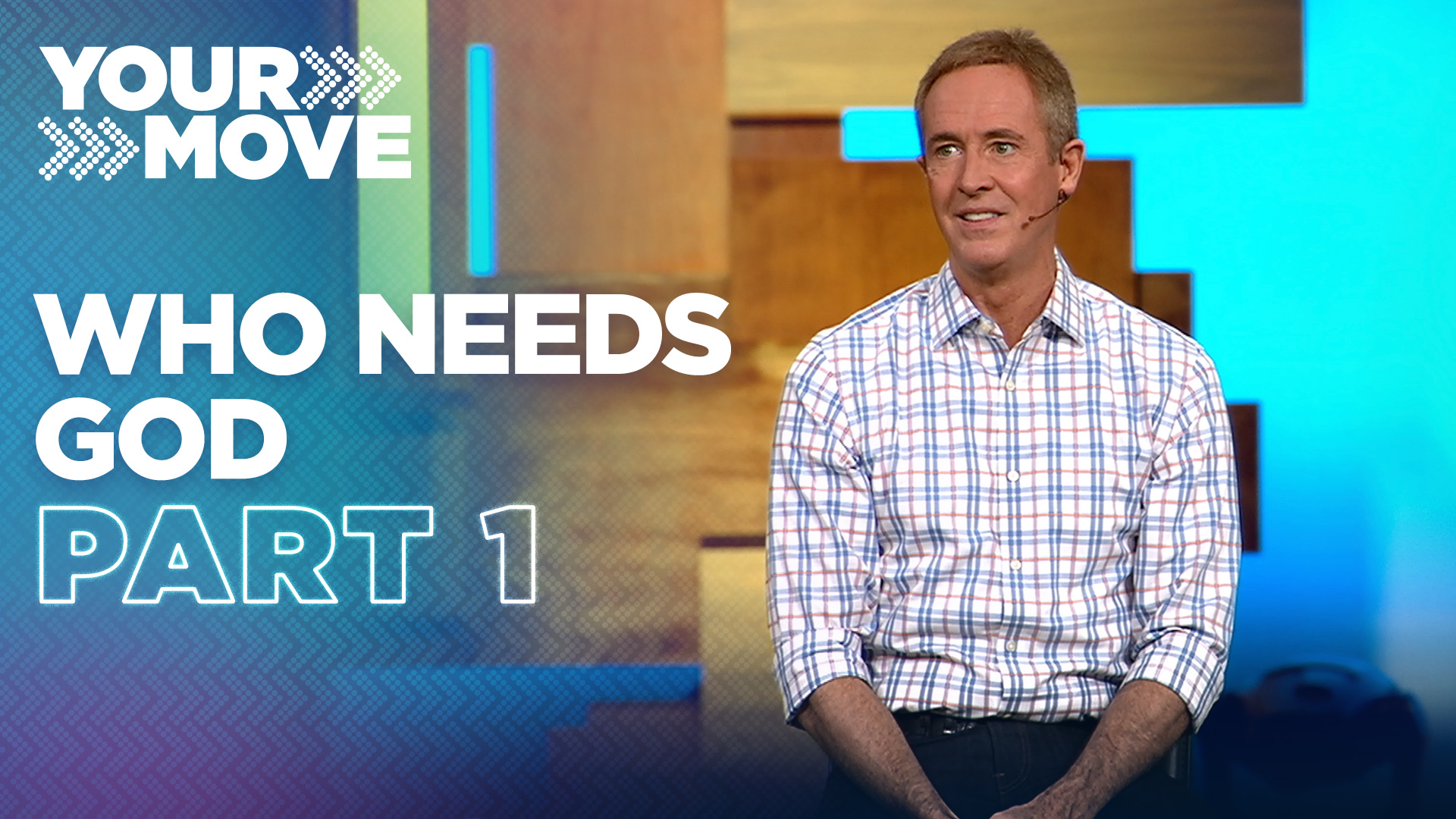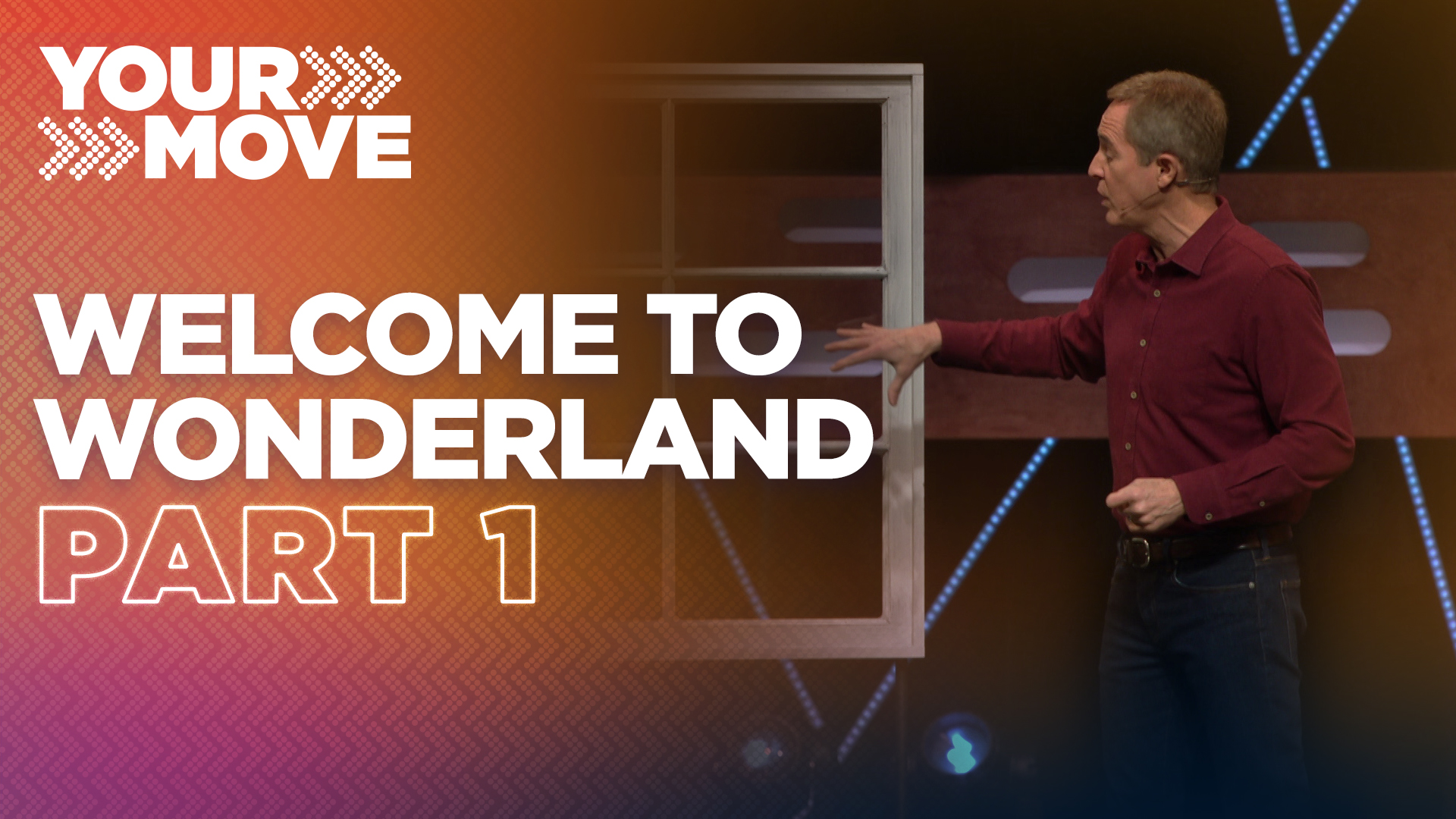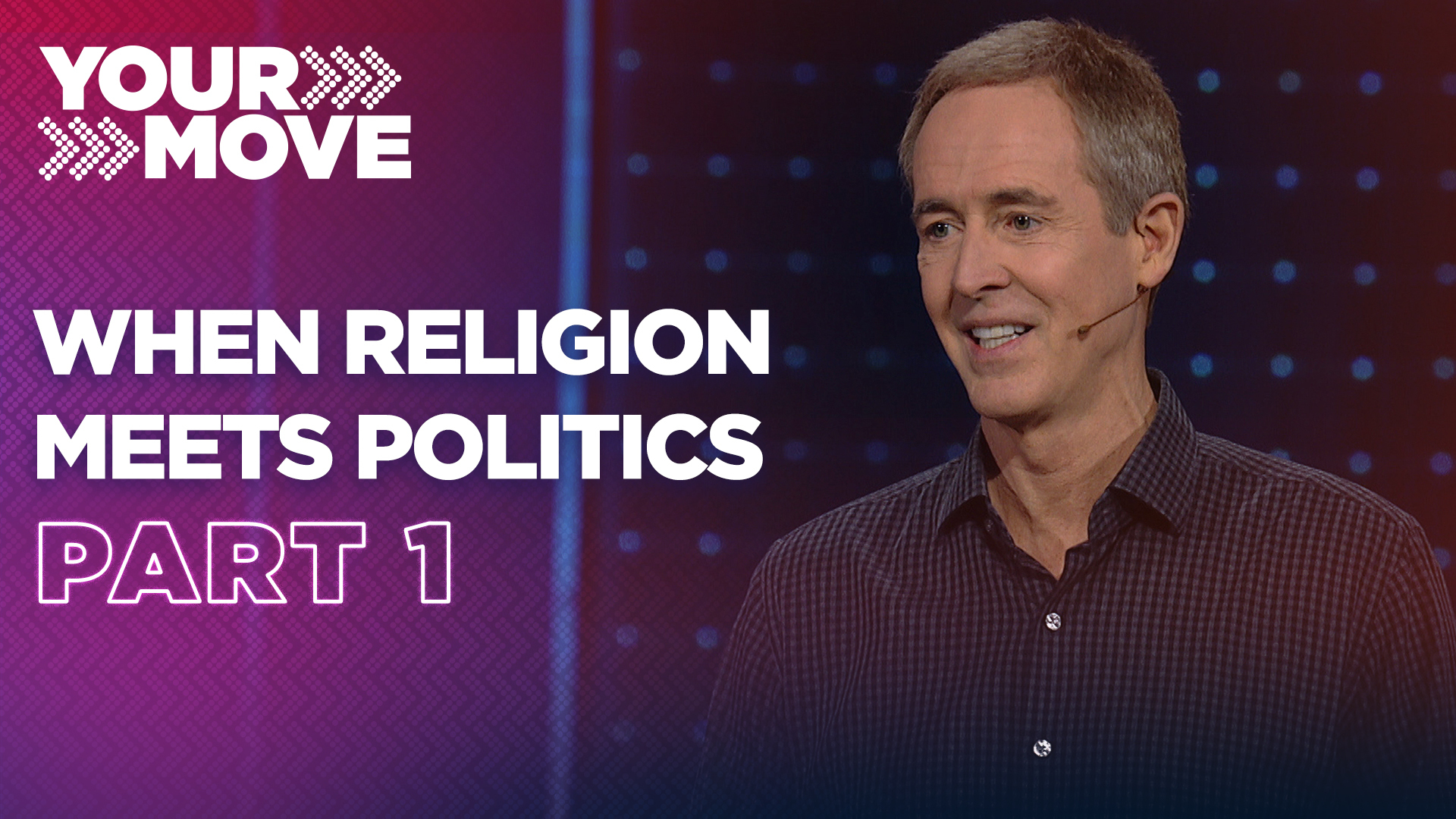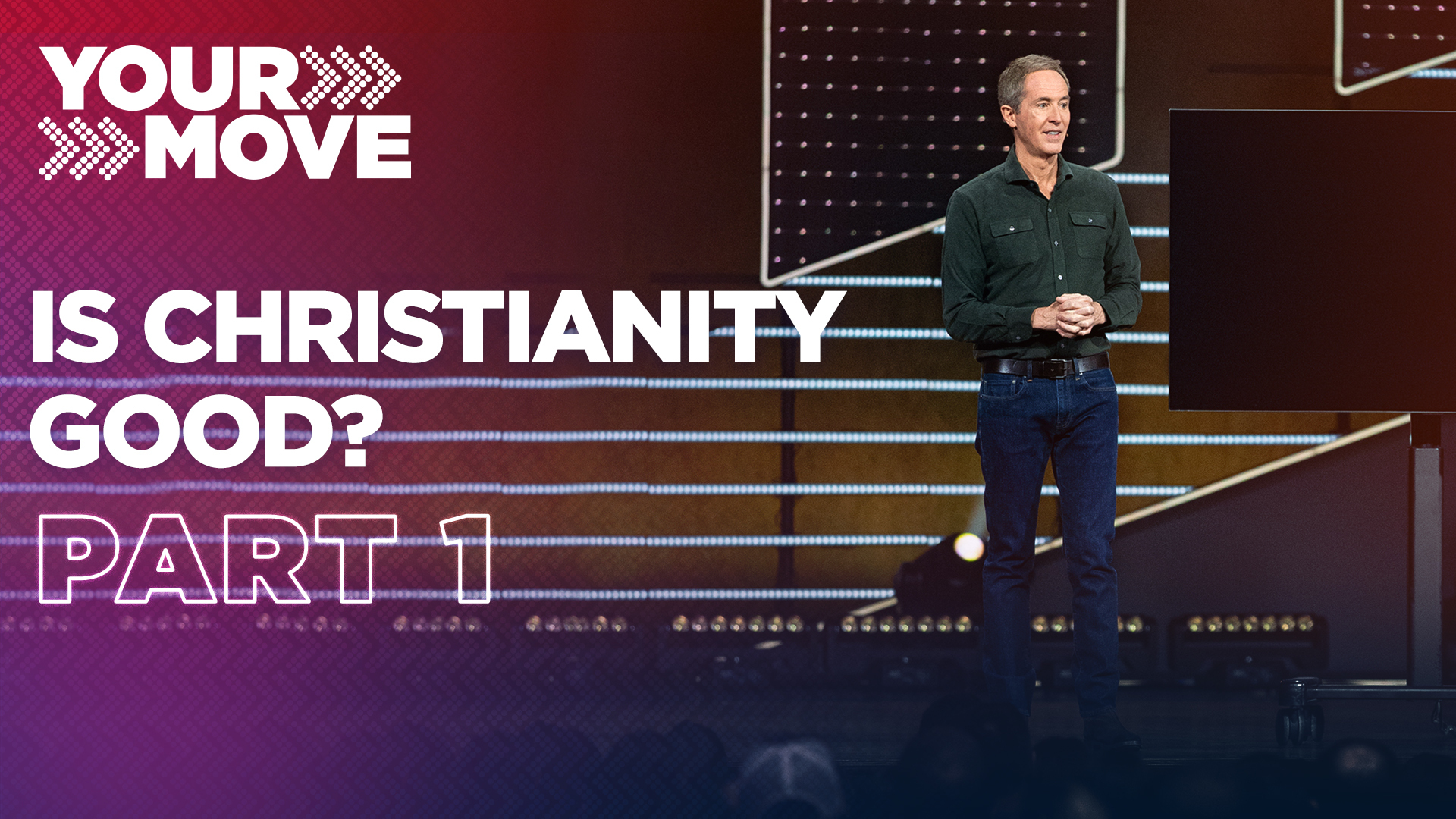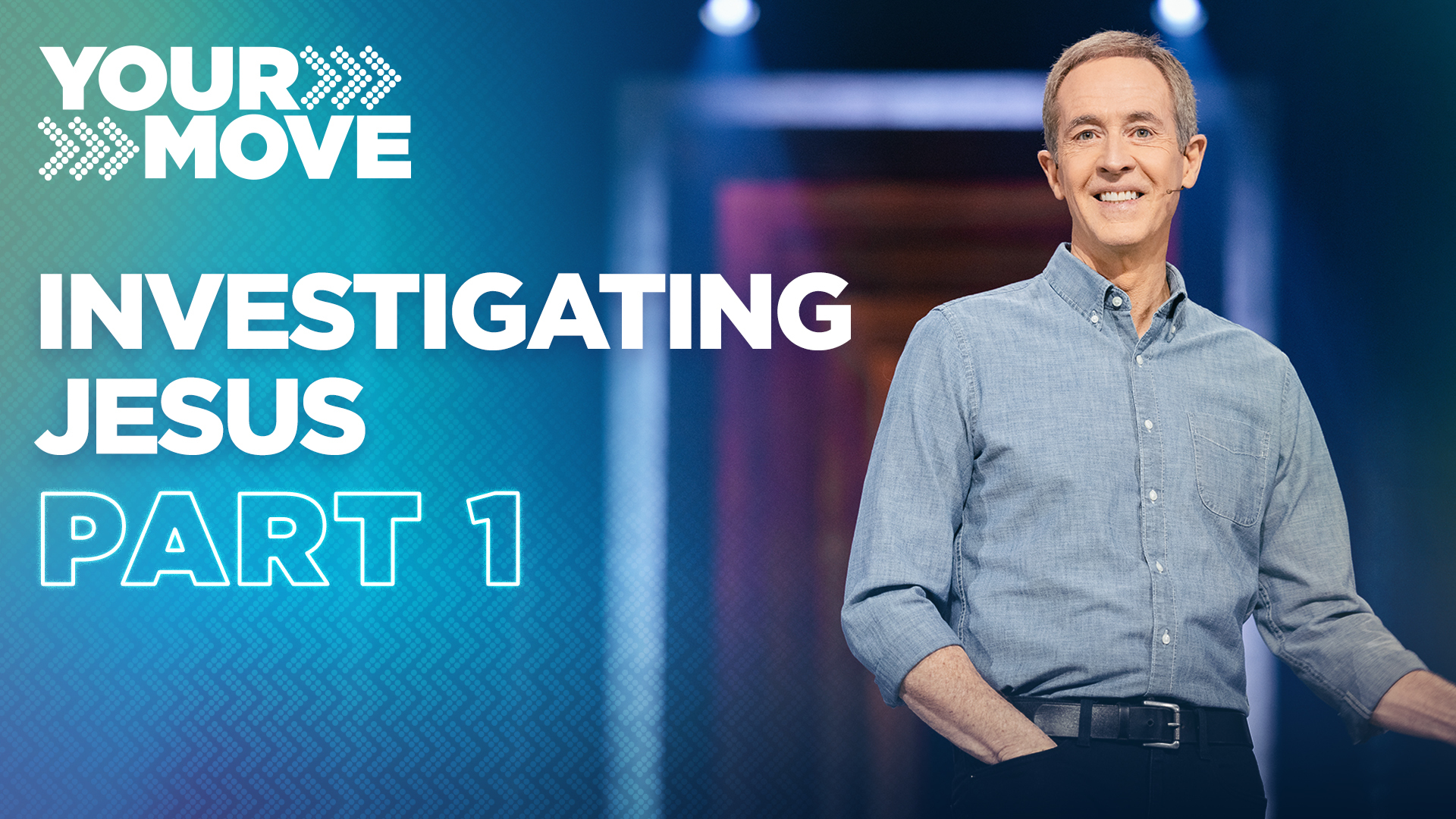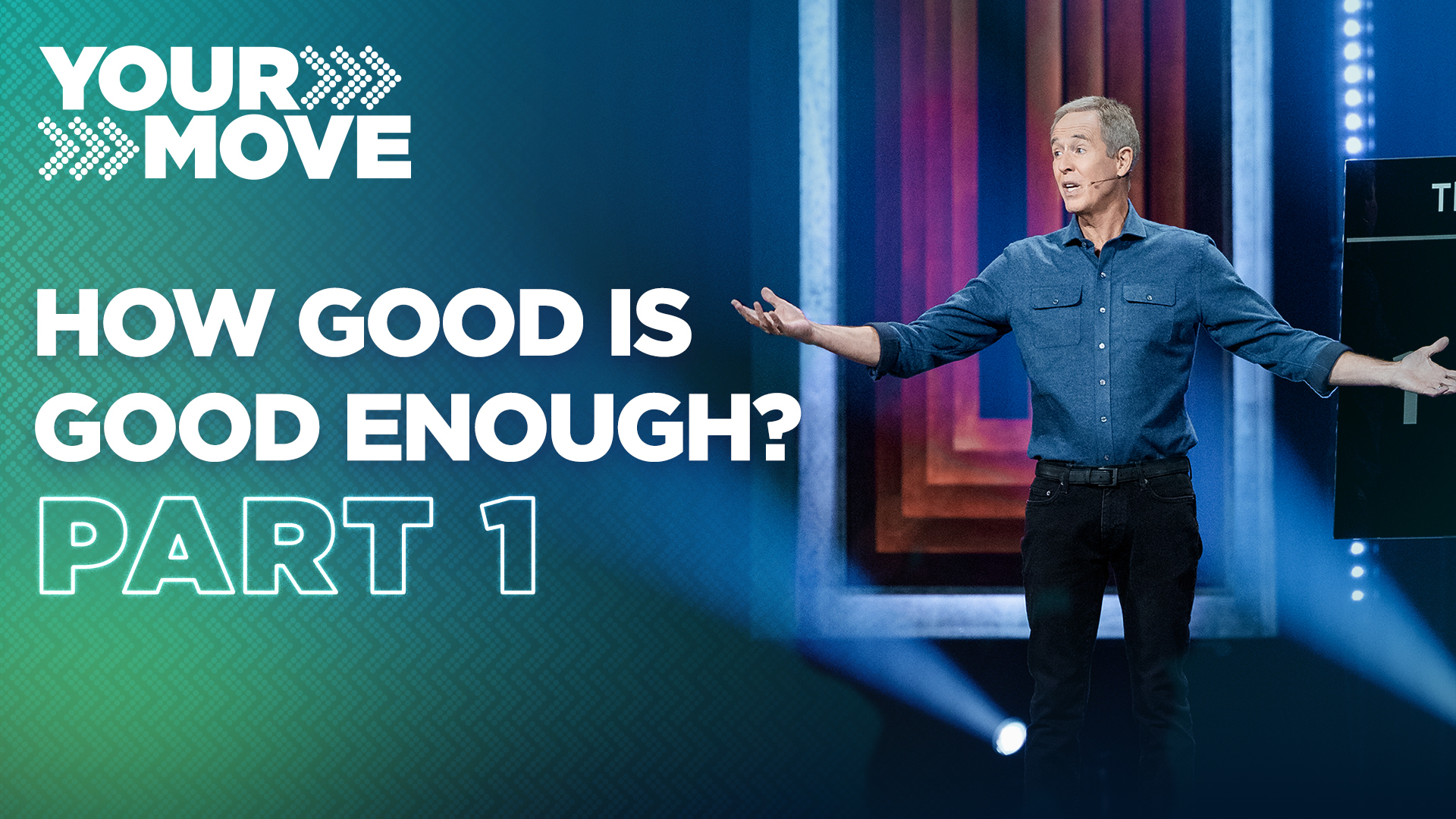There are people who will go out of their way to help someone and expect nothing in return. We like those people and we want to be like them; Jesus extends an invitation that shows us how to be those people.
- Describe a time when someone went out of their way to help you. What did that communicate to you and how did it make you feel?
- How have the people in your life demonstrated love to you over the years? How have you demonstrated love to them?
- What is your initial reaction to the idea that Jesus changed the definition of “neighbor” to everyone in every generation in every nation?
- What is one way you can demonstrate love to someone you encounter today? What needs do you see that need to be met?
NOTE: The following content is a raw transcript and has not been edited for grammar, punctuation, or word usage.
So, do you know who it is virtually impossible not to like? Who it is virtually impossible not to want to be like or to be more like? It’s that person who stopped; who went out of their way to help you and didn’t expect or require anything from you. They saw you in need, and they saw a need, and they just met it. They saw that something needed to be done, and they just stepped up, and they did it. And they didn’t just walk by and talk themselves out of it. When you have an experience like that, and we’ve all had those experiences, I hope, you just never forget those folks.
In today’s episode of part four of Investigating Jesus. Investigating Jesus, how we know, and why we follow. Now, as we’ve said throughout this series, this is… These are really important issues right here, because we’re asking the question, how do we know there’s anything… There’s even anything to the story of Jesus? And if there is something to the story of Jesus, why should we bother to follow, because the invitation to follow Jesus is all-encompassing and includes your time and your money and your relationships and your career and your school. Following Jesus; it’s an all- or-nothing kinda proposition. So for modern people to consider following Jesus, we better have a really, really, really good reason. And the other reason it’s such an important issue is because Christianity, Christianity, or I should say the credibility of Christianity actually rises and falls on the identity of this single individual, Jesus of Nazareth, which means…
And we’ve said this each time in this series; which means if you are considering faith, or if you are reconsidering faith, or if you are in the process of unconsidering faith, there’s really just one pertinent question for you to wrestle with. And the question is not “Does God exist?” That’s fun to talk about. The question isn’t, is the entire Bible true? That’s fun to talk about as well. But the issue, when it comes to Christianity, really boils down to this. Is Matthew, Mark, Luke or John a reliable account of actual events? And if any of these one… If any of these four accounts of the life of Jesus are true, then regardless of what you believed in the past or where you’ve been or what you’ve done, you should sit up straight… We should all sit up straight and pay attention, because if these are… Any one of these is a reliable account of actual events, then what Jesus did actually, he actually did, or what it says that Jesus did, he actually did. And what he taught, he actually taught. So, the issue is, one or more of the Gospels… And all of Christianity rises and falls on that question. So, in this series, we’re actually just exploring one of the accounts of the life of Jesus written by Luke; named, actually, for the author Luke, who apparently was a first-century doctor who knew the main characters in the story of Jesus. He knew Peter. He traveled all over the Mediterranean rim with the Apostle Paul. He knew James, the brother of Jesus.
And right up front, as we’ve said throughout in this Gospel, right up front, he tells us that he’s not writing religious literature. This isn’t sacred religious literature. He’s actually just documenting someone’s life, the life of Jesus of Nazareth. And he wasn’t alone, because the events surrounding the life of Jesus were so amazing, were just so (Sarah, there is an audio glitch right here that sounds like a pop) life- changing, and not just life changing, but culture-shifting, the story had to be told. So here… Here’s what he says at the very beginning of his account of the life of Jesus. He says, “Many… ” I’m not the only one. And many isn’t four. “Many have undertaken to draw up an account of the things that have been fulfilled or the things that happened among us, right here among us, just as they were handed down to us by those who were from the first eyewitnesses and servants of the word.” So, Luke is not writing the Bible. Luke is just telling us what happened, and later, this first-century document would be included in the documents that make up what we call the Bible. So he starts off by detailing Jesus’s birth. Then as we said in part two, then he introduces us to the warm-up act, John the Baptist, and then he gives us a summary of Jesus’s entire life mission.
He said that Jesus said this, “I must proclaim. I must proclaim the good news. I must proclaim the good news of the kingdom of God. That is why I was sent.” So Luke’s like, “Here’s Jesus’s mission statement, to proclaim the good news of the kingdom of God.” And the whole idea of the kingdom of God, Jesus presenting the kingdom of God, this represents the reign and the rule of God. And Luke says, “This is what was so amazing about Jesus.” When Jesus talked about God’s rule, either on earth or over the life of a person, it was inviting. It was relational. It was without borders. It was as if… Luke would tell us, it was as if everybody was invited and everybody was included, that… Luke was saying… Luke would tell us, and we’ll discover as we read the Gospel of Luke, it’s like he said…
It’s like Jesus was saying that God doesn’t recognize, and God has little patience for the artificial stratification of the human race, that every single culture and every single generation tries to impose on the human race. That everyone was endowed with certain inherent worth. That everybody had value. That everybody was made in the image of God. And wherever Jesus’s followers stubbornly embraced, wherever they stubbornly embraced, defended, and modeled Jesus’s new covenant command to love others as God through Christ has loved us, people flourished. The world was a better place. And all the caste systems and the differentiating of types of people, all of that began to fall away.
So, on one occasion, Jesus spoke about this directly, and Luke documents this occasion where Jesus really goes out of his way to reiterate this new and unique vision for his followers, which was a new and unique vision for the world, and it’s like Luke leans in and says “Okay, this is so important. This is why I included this. This is how epic the words of Jesus… This is why this story had to be told.” Here’s what he says, Luke Chapter 10. On one occasion… On one occasion, an expert in the law, a lawyer, stood up to test Jesus. He had a question, but it was a test; that’s important. “Teacher,” he said, “What must I do to inherit eternal life?” Now, eternal life, in the first-century… First-century Judeans… What he’s asking is, “How do I know I get to participate in God’s future kingdom?
Now, he’s testing Jesus, but he’s also genuinely curious, because the answer to the question, “How do you reserve a seat in God’s future kingdom?” Wasn’t all that clear from the law and the prophets. But Jesus is smart, and he knows that this is a test, and he knows that there’s a question behind the question. So Jesus did what Jesus does; he responds with a question. So he says, “Well, you’re a lawyer. What is written in the law? How do you read it?” In other words, you tell us, and you tell me, and we’ll both know. You’re a lawyer. You should know this, right? So then the lawyer, as you may know, ’cause this is such a familiar story, the lawyer recites back to Jesus and Jesus’s audience what they were all taught as children as kinda the synopsis of the law that somehow should point the way to making sure you have a reserved seat in God’s future kingdom.
So he says back to Jesus, “Well, this is how I read it. This is what I think the answer is. Love the Lord your God with all your heart, with all your soul, and with all your strength, and with all your mind.” Now, this is an important part of the story. Earlier, somebody had asked Jesus a similar question, and when Jesus… And in that case, Jesus actually recited this back as the answer to the question asked, but he added a part that we’re all familiar with from Leviticus 19:18. He added the phrase, “And your neighbor as yourself,” ’cause somebody had said, “Hey, what’s the greatest commandment?” Jesus says, “Well, there’s not greatest commandment, there’s two greatest commandments, and they’re actually the same commandment, because they are actually different sides of the same coin.” Now this… When Jesus added “And your neighbor as yourself” to what was kind of a formulaic answer to first-century Judeans, it caused quite a stir. But the reason Jesus added “And your neighbor as yourself” because he was making a point, and this is when Luke wants to lean in and say, “And this is the point.” His point was that love for God is demonstrated by love for others. That love for God… This was Jesus’s. The point of his ministry. This is why it’s good news. This is why the reign and rule of God is not something to be resisted. That love for God is demonstrated by love for others.
Well, anyway, apparently, this lawyer was there when Jesus added on “And your neighbor as yourself.” So he recites kind of the Sunday school answer to the question to “How do… How can I know for sure I’m gonna have eternal life?” Then he smiles at Jesus, and he adds, “And I’ve been listening, Jesus. And love your neighbor as yourself.” Well, Jesus is so happy somebody is finally paying attention and starting to get this, right? And Jesus looks at him and says something that Jesus almost never says in the Gospels, “You have answered correctly.” Because mostly, people answer Jesus incorrectly. So this is like… This guy is feeling pretty good about himself. Jesus replied, “Do this. Do this.” “What’s this?” “This” isn’t the “Love the Lord your God with your heart, soul, mind, and strength,” because you can’t measure that; you have no idea. “Do this” is referring specifically to the last part, “And love your neighbor as yourself.” “And if you do,” Jesus said, “Hey, Mr. Judean lawyer, you’ll have a reservation in God’s future kingdom. Alright, anybody else have a question?”
But the lawyer didn’t sit down, because he’s not finished. And the text says… Luke tells us, because somebody who was there told Luke. But he, the lawyer, was just like us. He wanted to justify himself. Don’t we all? of course we do. So he didn’t sit back down. He says… So he asked Jesus… This is the second part of the question. “Okay. Alright, if I’m gonna reserve, you know, a spot in God’s future kingdom, I gotta love my neighbor as myself, but you… You gotta be more specific than that. And who… ” Here’s the famous question. “And who is my neighbor?” Now, this is how this question was an attempt to justify himself. What he’s really asking is, “What is the minimum amount of neighbor-loving required to reserve a spot in God’s future kingdom? Okay, don’t just tell me love… That’s too open-ended. I want… You gotta be… I wanna know, what is the minimum amount?”
Now, for first-century… Not every century, but for first-century Judeans, a neighbor was another Judean; this was very ethnocentric. To love… And your neighbors were other Judeans, because they were… You know, Rome was there, there were different countries that were… Had become part of that culture. And so, they’re… You know, they’re taking care of themselves. So his question is, “Which subset of my Judean brothers and sisters do I have to love?”, hoping he had already met the requirement. And then, once again, in typical Jesus fashion, Jesus didn’t answer the question he asked. Jesus answers the question that he should have asked. Because the real question isn’t “Who is my neighbor?” The real question that Jesus wanted him to understand was this question: “What does neighbor love look like? And what does neighbor love act like?” Because Jesus’s actual agenda was this question: “What is God like?” And then, as many of you know, Jesus launches into the most disruptive, culturally insensitive, disorienting, paradigm- shifting parable of all of his ministry.
But more important than knowing the story, Jesus’s point is simply this: “This is what it looks like to follow me, because this is what your Father in heaven is like.” So he smiles. The man’s still standing there; everybody’s waiting for an answer to the question. Jesus says, “A man was going down from Jerusalem to Jericho when he was attacked by robbers.” [chuckle] And everybody’s like, “Wait, weren’t we just talking about neighbors? Now we’re talking about robbers?” But this is what Jesus did, ’cause everybody’s leaning in, ’cause they know this is going somewhere. And this was familiar context for them, because anybody going down from Jerusalem to Jericho… Everybody knew that path. It’s about 17 miles. It’s rocky. There’s caves, there’s desert, it was dangerous. It’s always a little bit dangerous. It was so dangerous back then. So this man… This is something that happened all the time; it could have happened to anyone in Jesus’s audience. So he’s on his way from… From Jerusalem down to Jericho, and he’s set upon by robbers, and then Jesus continues, “And they stripped him of his clothes,” because clothes were very valuable. “They stripped him of his clothes, and they beat him, and they went away, leaving him half-dead.”
Now remember, this is a parable; Jesus was making the whole thing up. This… None of this… This is… This could have happened. This is a made-up story in order to make a single point. And everybody’s leaning in, and of course, the lawyer is like, “I hope we get back to the neighbor thing, but go ahead, this is fascinating,” right? Jesus says, “And then, these two religious people… ” One actually, it appears, from what Jesus said, coming from Jerusalem, so they’re all ceremonially clean and all buttoned up with God. These two religious people come by, and they see their bruised and bleeding Judean neighbor, and they don’t lift a finger. In fact, they probably thought to themselves, “Well, you know what, he probably deserved this. I mean, this is fate. This is karma. Besides, the law forbids us to kill anyone, but the law does not require us to keep someone from dying.” So they didn’t.
Now, if his audience was paying close attention; and I wanna make sure we are. If his audience was paying close attention, and if Jesus’s greatest hits formula was correct, that you love the Lord your God with your whole heart, soul, mind, and strength, and your neighbor as yourself, well, then these two guys are doomed. The two religious guys are doomed, because they did not love their Judean neighbor, which meant they did not love the Lord their God, even though they were on their way, or coming from the city of Jerusalem. And then Jesus pauses for dramatic effect, because he’s the master storyteller. And he says, “But there was another one. Another person came by, but a Samaritan.” Now everybody in Jesus’s audience is like… You know, because they probably assumed that this was a real story; a Samaritan is probably who robbed the guy to begin with, because the Judeans and Samaritans, as you know, if you grew up in church, didn’t get along. In fact, Judeans considered Samaritans the least respectable of all people. And consequently, as you would imagine, the Samaritans kind of returned the favor because of how they were looked down on and because of how they were treated.
And now, Jesus, it looks like… He looks like he’s about to make a Samaritan the hero of this parable, but a Samaritan. And his audience is thinking, “Wait, wait, wait. Surely you’re not about to make him the hero.” But he did.
But it’s even worse than that. If you paid attention to Jesus’s parables, and I don’t know that Jesus’s audience did, but his disciples certainly did, because in every single parable that Jesus would tell, there is someone that represents God the Father. And the disciples… Peter and the guys are like, “Oh no. Oh no. Oh no. He’s about to make a Samaritan the God figure in the parable. We’re never gonna get this venture off the ground. Does he not understand our culture? I mean, this is like the worst thing he could do.” But a Samaritan… You know the story. As he traveled, came to where the man was, and when he saw him, he took pity on him. He did something. And then, Jesus makes this Samaritan out to be the extra mile, are you kidding me, who would even think about doing that, variety of hero. In fact, there are six… I counted six, there may be more, six or more expressions of compassion, so Jesus just… He’s just packing it on, he’s just loading it on, he’s just twisting the knife; he says this: “He went… ” This imaginary Samaritan who came upon this imaginary Judean who had been robbed, he went to him and he bandaged his wounds, which meant he touched him. He poured oil and wine on the wounds, which means it cost him. Then he put the man on his own donkey, which meant that, you know, he had to go out of his way; now he’s gonna have to walk and go slower instead of ride. And he brought him to an inn, and he took care of him.
And the audience is like, “Wait, wait, wait. The guy spends the night… ” And Jesus just rubs it in, that this wasn’t a dump and run. He spent the night caring for this guy. Then the next day… I mean, the audience can’t… They’re… This is just beyond imagination; nobody would do this. Then the next day, he took out two denarii and gave them to the innkeeper, and immediately, they do the math in their mind, and they’re like, “Are you kidding? This would take care of the guy for like two weeks! You just paid like two weeks of room and board for someone you don’t even know?” And in the parable, the Samaritan says to the innkeeper, “Hey, I gotta go, but I want you to look after him. And when I return… ” “Oh, no, you’re gonna come back?” “Oh yeah. I’m gonna come back and check on this guy. When I return, I will reimburse you for any extra expense you may have.”
Silence. “No way I can… This is… This is beyond the pale, and what in the world does this have to do with neighbors? Okay, this is… You just made up a story no one could ever believe. You lost us as soon as he touched the guy, right?” The lawyer’s confused. If you’re not a Christian, if you’re not a Jesus follower, you walked away. I don’t even know how to put words around this next moment. But it’s undeniable, what I’m about to say, because this actually happened, but again, it’s just a reminder of the weight of Jesus’s teaching and how it has shaped culture; cultures all over the world. What Jesus did next, his immediate audience would not live long enough to appreciate, because Jesus was about to redefine neighbor for everyone, in every generation and in every nation. Neighbor would no longer be primarily about ethnicity, proximity, “Do you like me?” Jesus expands the idea of neighbor beyond Judea and Galilee. He expands it beyond people you know and don’t know. In fact, he expands it beyond the borders of their scripture.
And what’s so brilliant… This is why… Nobody could make this up. And Jesus does all of that for every generation and every nation with one perfectly timed, perfectly created, perfectly delivered question. And it’s a question that forces me, and it’s a question that forces you, and it’s a question that forces everybody everywhere to examine their hearts, our hearts, and our prejudices, and our contempt for folks who don’t look like us, and who don’t live like us, who don’t believe like us, who don’t act like us, who don’t worship like us, who don’t vote like us, who are basically nothing like us, who don’t even like us. And 2000 years later, 2000 years later, the weight of this annoying question still rests on our shoulders. It’s annoying, it’s annoying, because we all know the answer to the question, and it’s inescapable.
So Jesus looks at the lawyer after he finishes the parable, and he says this: “Okay, I got a question for you; you’ve been asking me questions. Which of these three do you think was a neighbor to the man who fell into the hands of robbers?” Now, if they’ve been paying attention, and if you’ve been paying attention, and if we’ve been paying attention, the implication behind this question would go way beyond the excitement and the drama of the parable. Here’s what the question really comes down to. Which of these three loved God? Which of these three loved God with all his heart, soul, mind, and strength by loving a stranger as himself? And the problem for the lawyer standing there is this: If he answers this question out loud, he’s accountable to his answer. It’s worse than that.
If you answer this question out loud, or if you answered this question out loud, or if I answered this question out loud, I’m accountable to my answer for the question. And the lawyer, surrounded by Judeans, primarily, he can’t even bring himself to answer the question directly.
The text, as Luke tells us, the expert in the law required… Jesus then said, “Which one of the three? There’s just three. There’s two that walk by and there’s one that helps. Which one of the three was a neighbor?”, and he’s like, “The… The… The… You know, the… The… The other one? The one… ” He can’t even say Samaritan. “The… You know, the… The one who had mercy on him. The one who saw a need and met it. The someone that saw there was something to do that they could do, and they did it. The one that didn’t talk themselves out of it.” Jesus smiles, looks at him, looks at his audience, looks at me, looks at you, looks at us. He says, “Alright. Tell you what, go. Let’s do that. Do you wanna participate in the kingdom of God on earth? Do you wanna live your life in sync with God’s activity in the world? “Then just… Just… Just go do that. When you see a need you can meet, meet it. When there’s something you know you can do, do it. And don’t talk yourself out of it. Just go.” And they hated this part. This is maybe why he didn’t say… These are my words, not his. “Just… ” He was basically saying, “Just go. Be the Samaritan in the parable.”
And suddenly, neighbor love has no boundaries. And neighbor love didn’t, because God’s love doesn’t. And this is when Luke just wants to come off the page and grab me by the collar, and put his hand behind your head and pull you up close and say, “Can you believe this? Nobody thought this way. Nobody lived this way. Nobody could even imagine a community like that. Nobody can imagine a world like that. And Jesus asked this perfect question. And by the time Luke writes his gospel, it’s already having ripple effects through Judea and Galilee and Samaria, and the Apostle Paul and others are gonna take it to the uttermost parts of the earth. And what was not self-evident in the ancient world is so self-evident to us because of the teaching and the life of Jesus. And somehow, Luke knew, “This is the story that has to outlive me and outlive my generation.” because when you hear this story, you know that if we live that way, the world would change. It would change everything.
So back to us. So, which… Which one of the three do you think, do I think… Which one of the three do you think was a neighbor to the man who fell into the hands of robbers? Don’t answer it out loud, or you’ll be accountable. But if you wanna see God’s kingdom come and see God’s will be done, if you are a Jesus follower and not just an admirer… Jesus does not need anymore admirers; he has plenty of admirers. He has plenty of believers. He needs doers, because it’s the doers that change the world. It’s the doers, not even the prayers, that change the… You’re gonna walk by a wounded man and pray that somebody will stop and help him, then that is not loving the Lord as your God. And I know this is challenging, and I know it’s like, “How far do we take it?” And again, we wanna justify ourselves. I get it, I wanna justify myself. But do you wanna change the world? Do you wanna change the community? Do you wanna see change? It’s very simple; Jesus gave us the formula. He wraps it up in that horrible, wonderful question.
You wanna see… For those of you, if faith has gotten boring for you, church has gotten boring for you. In fact, one of the reasons you’re losing faith is because there’s just nothing to it. You know why there’s nothing to it? You’re not doing it. You’re just believing it, or disbelieving it, or debating it. But you step into a realm when you see something that needs to be done, do it, and when there’s a need you think you can meet, you meet it. And you get in a little deep and a little bit over your head, and suddenly, you’re praying like never before, and suddenly, your faith comes to life, like maybe it’s never been alive before. This is the life Jesus invites us into. And to live any other kind of life is to simply be religious. You wanna see your faith come alive, come back to life? Go. This is Jesus’s words, not mine. He said, “Go. And do likewise.” Do you know who it is virtually impossible not to like? Do you know who it is virtually impossible not to want to be like? Do you know whose influence it’s virtually impossible to resist? Let’s be those people. Let’s be that person. Let’s be the Samaritan. Let’s change the world.
And we will pick it up right there, next time, in part five of Investigating Jesus. Here’s how we know. And here’s why we follow.


